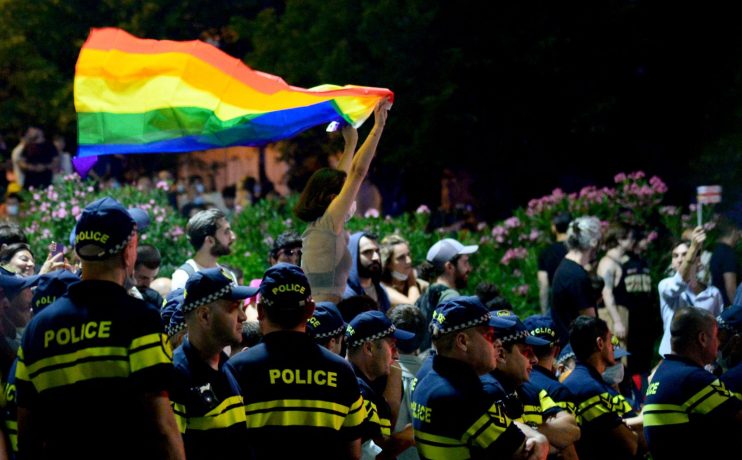Quo vadis, Georgia? The UK and EU have a cautious path to tread with its diplomatic ties

The last year or two in Georgian politics have thrown up several disturbing events. None are more perplexing than the nations’ decision to engage in a cooperation agreement with the Belarusian KGB last month. While Western countries ramped up sanctions against the regime in Minsk, Georgia’s move was at odds with its aspirations for EU and NATO membership.
The Georgian authorities have defended the cooperation as being limited to fight organised crime, terrorism and corruption – they claim it is no different to similar agreements with the UK and other Western countries. This would be true, if Belarus was not a de facto dictatorship that has been brutally clamping down on any opposition following last year’s rigged election.
Georgia has otherwise been held up as the prime example of economic and political progress since the Rose Revolution in 2003. So to some, this will come as a surprise. To those who have been following recent events more closely, it fits a wider pattern of alarming behaviour. In this light, Europe and the West should be wary of a closer relationship.
In July, there was shocking violence around the planned Pride parade in July. A mob attack on the parade organisers and journalists left one cameraman dead and the LGBTQ community in Georgia reeling. Instead of offering a statement condeming the hate, Prime Minister Irakli Garibashvili said a gay pride parade was “unacceptable for a large segment of the Georgian society”, later adding that “when 95 percent of our population are against holding propagandistic parades in a demonstrative manner, we shall all obey that, my friends”. This inevitably went down badly with Western partners: the US embassy suggested the “credibility of democracy in Georgia” was at stake and even dangled the threat of sanctions. The Baltic countries denied the Prime Minister an official visit.
A week after the attacks on Pride, several new Supreme Court justices were appointed, contrary to an agreement with the EU to first implement urgent judicial reforms. It is the courts’ position that remains a key obstacle in a closer relationship between Georgia and Europe – with judicial independence ranked 80th by the World Economic Forum. Both the EU and the US have pushed Georgia to hasten reform and to avoid politically motivated judicial cases. In an awkward diplomatic incident for Georgia, the EU offered to pay the bail for opposition leader Nika Melia as part of a deal for opposition MPs to take up their seats after a boycott following last year’s elections. This deal was unilaterally abandoned by the Georgian government in July.
Personal political interests have even undermined essential infrastructure projects like the Anaklia Port, a deep sea construction project, and the attempted expropriation of Caucasus Online – part of a wider effort to connect Europe with Central Asia with a fibre optic network. In both cases, the objective was to provide alternatives to Russian-controlled infrastructure. The new law enabling the government’s takeover of Caucasus Online can also be used against media platforms, threatening already shaky media freedom. It has been roundly criticised by rights groups, as well as a recent report by the Council of Europe’s Venice Commission – of which the UK remains a member. The Georgian government has remained immune to such censure.
These developments will not have gone unnoticed in Moscow. Russia has occupied territories in the North of Georgia since 2008. This new attitude which distances George from the West will draw them closer to the Kremlin.
It need not be this way. Georgia has, after all, made efforts in many areas of its society to adapt to Western values and political norms. The vast majority of Georgians would prefer a closer relationship with Europe rather than Russia. The job for the UK and the West, then, is to encourage reformist elements of Georgian society and reject those undermining its progress. Then it’s up to Georgia: if it wants to succeed in its foreign policy ambitions, it will have to shirk off the influences holding it back.